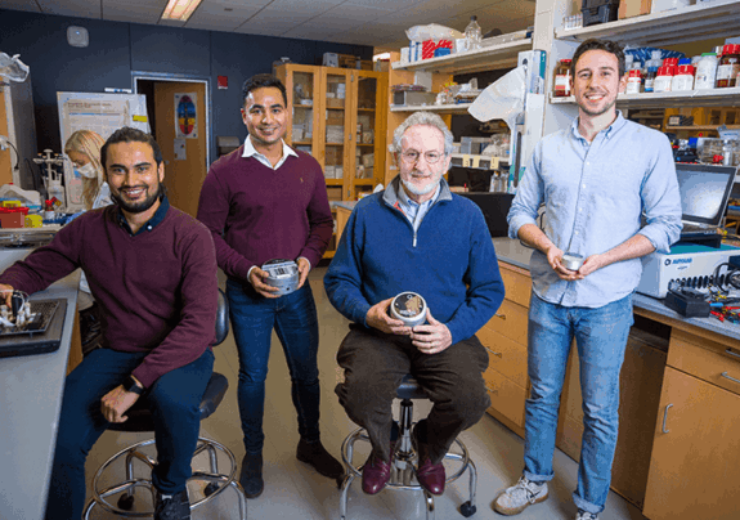The startup will use the electrochemical sensor platform developed at the Wyss Institute to design and market affordable, highly sensitive, and specific point-of-care diagnostics

Members of the Wyss Institute team that developed the eRapid electrochemical biosensor technology. (Credit: President and Fellows of Harvard College/ Wyss Institute)
Cambridge-based startup StataDX has obtained a license to the Harvard University-based Wyss Institute’s affinity-based, multiplexed, electrochemical sensing technology, eRapid.
Coordinated by Harvard’s Office of Technology Development (OTD), the license will grant StataDX exclusive worldwide access to the eRapid in the field of neurological, cardiovascular, and renal diseases.
StataDX’s team will focus on developing diagnostic tests that can address critical unmet diagnostic needs in near-patient settings like physician offices, pharmacies and eventually at home.
The team behind the development of the technology at Wyss Institute was led by Wyss Senior Staff Scientist Pawan Jolly and Wyss Institute Founding Director Donald Ingber.
The technology is developed as a low-cost multiplexed diagnostics platform to simultaneously detect and quantify a wide range of biomarkers with high sensitivity and selectivity in a small volume of biological fluids.
The development of the eRapid was based on the discovery of an antifouling nanocomposite coating that enables electrochemical electrodes to withstand the attack of biofouling molecules.
The team improved eRapid’s biomarker detection effectiveness by switching their original gold-based chemistry to graphene-nanocomposite chemistry.
The improved coating method significantly decreased the cost of making eRapid sensors while also enabling long-term storage with no loss of electric signal.
The early stages of the eRapid technology development were sponsored through Defense Advanced Research Projects Agency (DARPA) grant.
Following the first eRapid-enabling discoveries, the team developed the technology through Validation and Institute Projects, financed by the Wyss Institute.
StataDX CEO and co-founder Sidhant Jena said: “I am excited to team up with technical leads from the Wyss and my co-founder Michal Depa to take diagnostics to its final frontier—the patient’s home.
“While there are many at-home tests for viral diseases such as COVID-19 available today, nothing yet exists for patients with complex chronic diseases such as multiple sclerosis, heart failure or chronic kidney disease that need periodic measurements of multiple biomarkers.
“The approach enabled by eRapid addresses underlying limitations of electrochemical biosensing in an elegant way, which may overcome the challenge faced by so many promising diagnostic technologies – the successful transfer to manufacturing at scale.”
